Table of Contents
Attention-Deficit/Hyperactivity Disorder (ADHD) is a neurodevelopmental disorder that affects both children and adults. It is characterized by symptoms of inattention, hyperactivity, and impulsivity. While ADHD is often associated with children, it is important to recognize that many adults continue to experience symptoms throughout their lives.
According to the American Psychiatric Association, approximately 4.4% of adults in the United States have ADHD. The prevalence of ADHD in the Philippines is not as well-documented, but increasing ADHD awareness in the Philippines is shedding light on its impact on adults, particularly women.
Importance of Recognizing ADHD in Adult Women
Recognizing ADHD in adult women is crucial because their symptoms often differ from those traditionally associated with the disorder, leading to underdiagnosis and misdiagnosis.
Women with ADHD are more likely to experience inattentiveness, anxiety, and emotional dysregulation, which can significantly impact their personal and professional lives. By understanding and identifying these unique symptoms, women can receive the appropriate support and interventions to manage their ADHD effectively.
Unique Symptoms of ADHD in Adult Women

Inattentiveness
Difficulty Focusing on Tasks
One of the hallmark symptoms of ADHD in adult women is difficulty focusing on tasks. This can manifest as an inability to concentrate on work, household chores, or even leisure activities.
Women may find themselves frequently daydreaming, losing track of time, or jumping from one task to another without completing any. This lack of focus can lead to feelings of frustration and incompetence, especially in environments that demand sustained attention.
Tendency to Be Easily Distracted
Women with ADHD often experience a high level of distractibility. External stimuli, such as noises or visual distractions, can easily divert their attention from the task at hand.
Additionally, internal distractions, such as wandering thoughts or worries, can further impede their ability to stay focused. This can result in missed deadlines, unfinished projects, and a general sense of chaos in their daily lives.
Anxiety
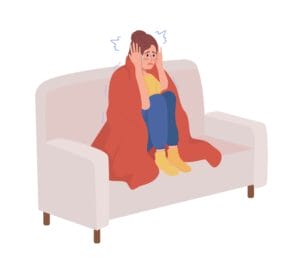
Constant Worry About Various Aspects of Life
Anxiety is a common co-occurring condition in women with ADHD. The constant worry about meeting responsibilities, managing time, and maintaining relationships can be overwhelming. This anxiety often stems from the chronic difficulties in staying organized and on top of tasks, leading to a perpetual state of stress and concern about failing to meet expectations.
Difficulty Relaxing or Feeling Calm
Due to their persistent anxiety, women with ADHD often struggle to relax and feel calm. Their minds are frequently racing with thoughts and concerns, making it challenging to unwind and enjoy moments of peace. This inability to relax can contribute to sleep disturbances and further exacerbate their overall stress levels, creating a cycle of anxiety and restlessness.
Emotional Dysregulation

Frequent Mood Swings
Emotional dysregulation is another significant symptom of ADHD in adult women. They may experience frequent and intense mood swings, shifting from happiness to frustration or sadness rapidly. These mood changes can be triggered by minor events or even perceived slights, making emotional stability difficult to maintain.
Difficulty Managing Emotions, Leading to Impulsive Reactions
Women with ADHD often have difficulty managing their emotions, leading to impulsive reactions. This can result in outbursts of anger, tearfulness, or inappropriate responses in social or professional settings. The inability to regulate emotions effectively can strain relationships and create additional stress, as women may feel guilty or ashamed of their reactions.
Recognizing these unique symptoms of ADHD in adult women is essential for proper diagnosis and treatment. Increased ADHD awareness in the Philippines and other countries can help more women understand their experiences and seek the support they need. By addressing these symptoms, women can better manage their ADHD and improve their quality of life.
Challenges Faced by Women with ADHD

Work-Life Balance
Maintaining a work-life balance is a significant challenge for women with ADHD. The difficulty in managing time and staying organized can make balancing professional responsibilities and personal life extremely demanding.
Women often find themselves overwhelmed by the multitude of tasks they need to handle, leading to chronic stress and burnout. This struggle can impact their ability to perform effectively at work and manage household duties efficiently.
Impact on Career Advancement and Job Performance
The organizational and time management issues associated with ADHD in adult women can also affect career advancement and job performance. Frequent missed deadlines, disorganization, and perceived unreliability can hinder professional growth and opportunities.
Women with ADHD may find it challenging to climb the career ladder, as they struggle to meet the expectations and demands of their roles. This can lead to frustration and a sense of being stuck in their careers.
Relationships

Relationships can be particularly challenging for women with ADHD due to their emotional volatility. Frequent mood swings and impulsive reactions can strain interactions with partners, family, and friends.
Maintaining stable and supportive relationships requires emotional regulation and consistent communication, areas where women with ADHD may struggle. This volatility can lead to misunderstandings and conflicts, making it difficult to sustain healthy and positive relationships.
Challenges in Communicating Needs Effectively
Effective communication is crucial for healthy relationships, but women with ADHD often face challenges in this area. They may struggle to express their needs clearly and assertively, leading to unmet expectations and frustration on both sides.
Miscommunication can exacerbate existing issues, causing further strain on relationships. Learning how to communicate effectively is essential for women with ADHD to maintain strong and supportive connections.
Self-Esteem
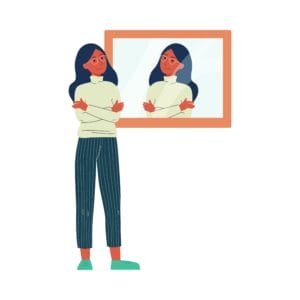
The continuous struggles with ADHD symptoms can significantly impact self-esteem in women. Constantly dealing with forgetfulness, disorganization, and impulsivity can lead to feelings of inadequacy and low self-worth.
Women may internalize these challenges as personal failures, affecting their confidence and self-perception. This can create a negative feedback loop, where low self-esteem further impairs their ability to manage ADHD symptoms effectively.
Perfectionism and Fear of Failure
Perfectionism is a common trait among women with ADHD, often stemming from a desire to compensate for perceived inadequacies. The fear of making mistakes or failing can be paralyzing, leading to procrastination and avoidance of tasks.
This perfectionism can be counterproductive, as it increases anxiety and stress, making it even harder to complete tasks efficiently. Overcoming this fear of failure and embracing a more realistic approach to goals is crucial for improving self-esteem and overall well-being.
Understanding the unique challenges faced by women with ADHD is essential for providing appropriate support and interventions.
By recognizing these struggles, we can better address the needs of women with ADHD and help them navigate their personal and professional lives more effectively. Increasing ADHD awareness in the Philippines and beyond will ensure that more women receive the understanding and support they need to thrive.
Common Misconceptions About ADHD in Adult Women

Misconception: ADHD is Only About Hyperactivity
One of the most pervasive misconceptions about ADHD is that it only involves hyperactivity. This stereotype largely comes from the more visible symptoms often seen in children, particularly boys. However, ADHD in adult women can present very differently.
Explanation of How ADHD Presents Differently in Women
ADHD symptoms in women often include inattentiveness, distractibility, and emotional dysregulation rather than overt hyperactivity. Women may experience internal restlessness, chronic disorganization, and difficulty managing daily tasks. These symptoms can be easily overlooked or misattributed to personality traits rather than ADHD.
Importance of Recognizing Inattentive and Combined Types of ADHD
There are three types of ADHD: inattentive, hyperactive-impulsive, and combined. Inattentive ADHD is characterized by trouble sustaining attention, organizing tasks, and following through on instructions. Combined ADHD includes symptoms of both inattentive and hyperactive-impulsive types. Understanding these variations is crucial for proper diagnosis and support.
Misconception: ADHD is Only a Childhood Disorder

Many people mistakenly believe that ADHD is something only children deal with and that one outgrows it with age. This is far from the truth.
ADHD is a lifelong condition that persists into adulthood. While some symptoms may change over time, many adults continue to experience significant challenges. Adults with ADHD often struggle with time management, organization, and maintaining focus in their personal and professional lives.
Adults with ADHD benefit greatly from ongoing support and treatment. This can include medication, cognitive-behavioral therapy, and lifestyle modifications. Continued support helps manage symptoms and improve the quality of life, debunking the myth that ADHD is just a childhood issue.
Misconception: Women with ADHD are Just Overly Emotional or Lazy

ADHD in women is frequently misunderstood, leading to harmful labels like “lazy” or “overly emotional.”
ADHD is a neurological disorder that affects the brain’s executive functions, such as planning, organizing, and controlling impulses. Symptoms like forgetfulness, distractibility, and emotional dysregulation are due to differences in brain structure and chemistry, not a lack of effort or character flaws.
Recognizing that ADHD is a legitimate medical condition is essential for providing appropriate support and reducing stigma. Empathy and understanding from family, friends, and colleagues can significantly impact the well-being and success of women with ADHD. It is important to shift the narrative from judgment to support, acknowledging the real challenges they face.
Why Many Women are Misdiagnosed or Undiagnosed
ADHD in adult women often goes undiagnosed or is misdiagnosed due to various factors. Understanding these reasons is critical for improving diagnosis rates and ensuring women get the support they need.
ADHD Symptoms in Women Can Be Subtle and Easily Overlooked
The symptoms of ADHD in adult women can be more subtle than those typically seen in children, particularly boys. Women often exhibit less hyperactivity and more inattentiveness, which can manifest as forgetfulness, chronic disorganization, and difficulty focusing.
These symptoms might be mistaken for laziness or lack of discipline, leading to a failure to recognize ADHD as the underlying issue. Additionally, societal expectations for women to manage multiple roles seamlessly can mask these symptoms, as women develop coping mechanisms that hide their struggles.
Overlap with Other Conditions Like Anxiety and Depression
Many symptoms of ADHD overlap with those of anxiety and depression, such as trouble concentrating, restlessness, and difficulty completing tasks. This overlap can lead to misdiagnosis, as healthcare providers might attribute these symptoms to anxiety or depression rather than considering ADHD.
Furthermore, the stress of living with undiagnosed ADHD often leads to secondary mental health issues, creating a complex picture that complicates accurate diagnosis.
Steps to Seek a Proper Diagnosis
Getting an accurate ADHD diagnosis is essential for receiving effective treatment and support. Here are the key steps for women seeking a proper diagnosis of ADHD.

Consulting with a Specialist Familiar with ADHD in Adults
It’s important to consult a healthcare professional who has experience diagnosing and treating ADHD in adults, especially women. Specialists such as psychiatrists, clinical psychologists, or neuropsychologists can provide more accurate assessments.
In the Philippines, seeking an ADHD diagnosis might involve visiting specialized clinics or professionals who understand the nuances of ADHD diagnosis in the Philippines context.
Importance of a Comprehensive Evaluation
A thorough evaluation is critical for an accurate diagnosis. This should include a detailed medical and psychological history, standardized ADHD rating scales, and possibly interviews with family members or close friends who can provide additional insights into the individual’s behavior over time. Comprehensive evaluations help differentiate ADHD from other conditions and ensure that all relevant factors are considered.
Sharing Detailed Personal History and Symptoms
When seeking a diagnosis, it is vital to share a detailed account of your symptoms and how they affect your daily life. Include examples from various contexts, such as work, home, and social situations.
Describing how symptoms have persisted over time and the impact they have on your ability to function can provide valuable information for the diagnosing professional. In the Philippines, bringing detailed personal histories and any previous medical records can facilitate a more accurate ADHD diagnosis.
Proper diagnosis of ADHD in adult women is crucial for accessing effective treatments and support. By understanding why many women are misdiagnosed or undiagnosed and knowing the steps to seek a proper diagnosis, we can better address this issue and improve outcomes for women with ADHD.
Conclusion
Recognizing and diagnosing ADHD in adult women is crucial for multiple reasons. Firstly, it validates the experiences of women who have long struggled with symptoms that were misunderstood or overlooked. Proper diagnosis allows for tailored treatment plans that can significantly improve quality of life, from better focus and productivity to enhanced emotional well-being.
Additionally, it helps dismantle the misconceptions that ADHD is only a childhood disorder or merely a hyperactivity issue, promoting a more nuanced understanding of the condition. By raising awareness and educating both healthcare professionals and the public, we can foster a more supportive environment for women with ADHD.
If you or someone you know is experiencing symptoms of ADHD in adult women, it’s important to seek help and support. Living with untreated ADHD can lead to various challenges, including difficulties in maintaining relationships, managing work responsibilities, and overall mental health.
Understanding that these symptoms are not a personal failing, but rather a manageable medical condition can be incredibly empowering. Don’t hesitate to reach out to mental health professionals who can provide the necessary evaluations and support.
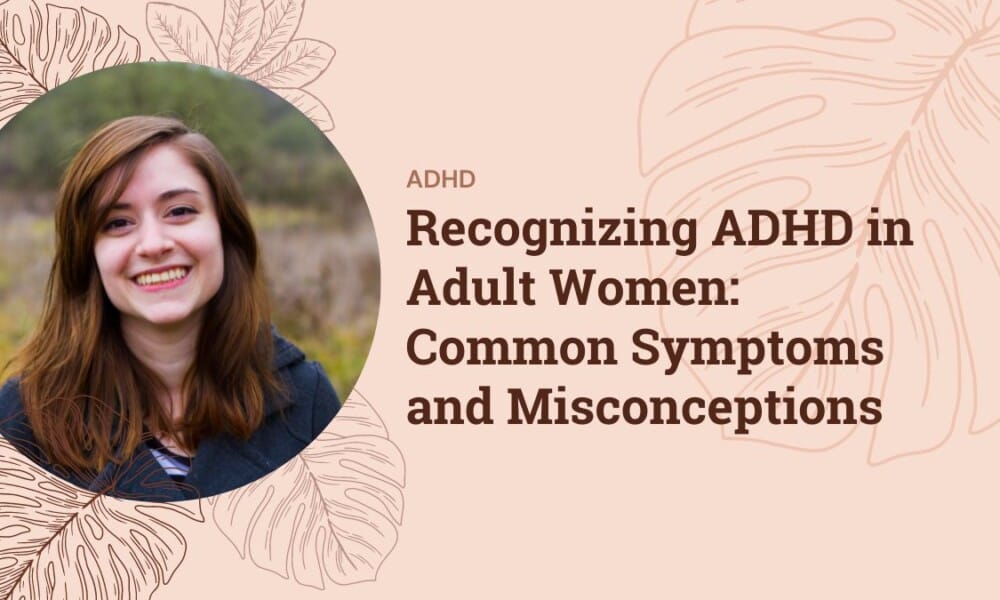



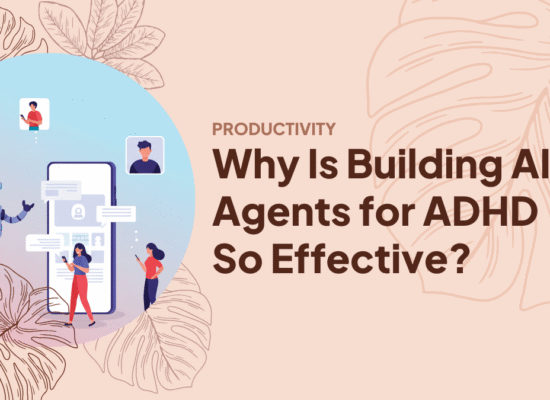
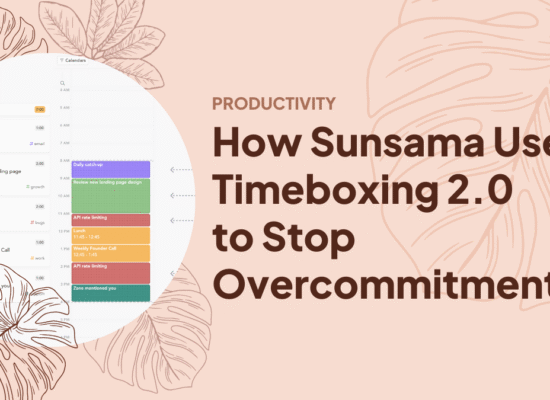

No Comment! Be the first one.